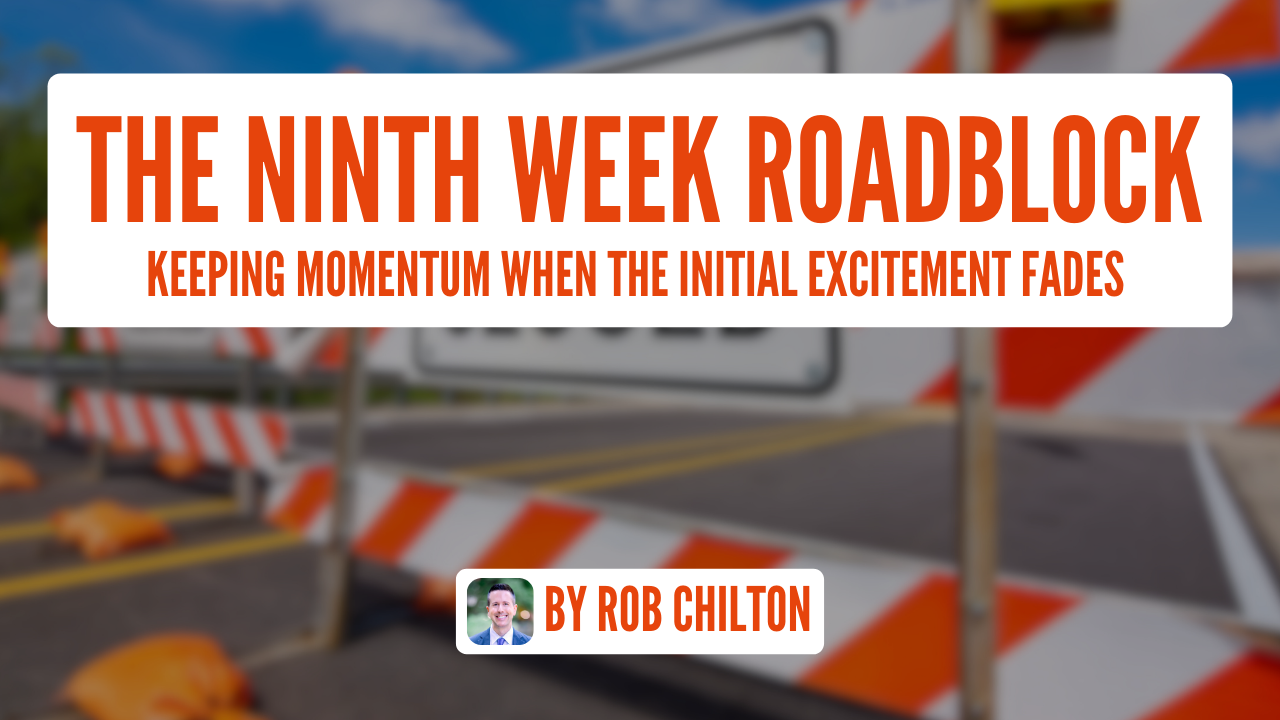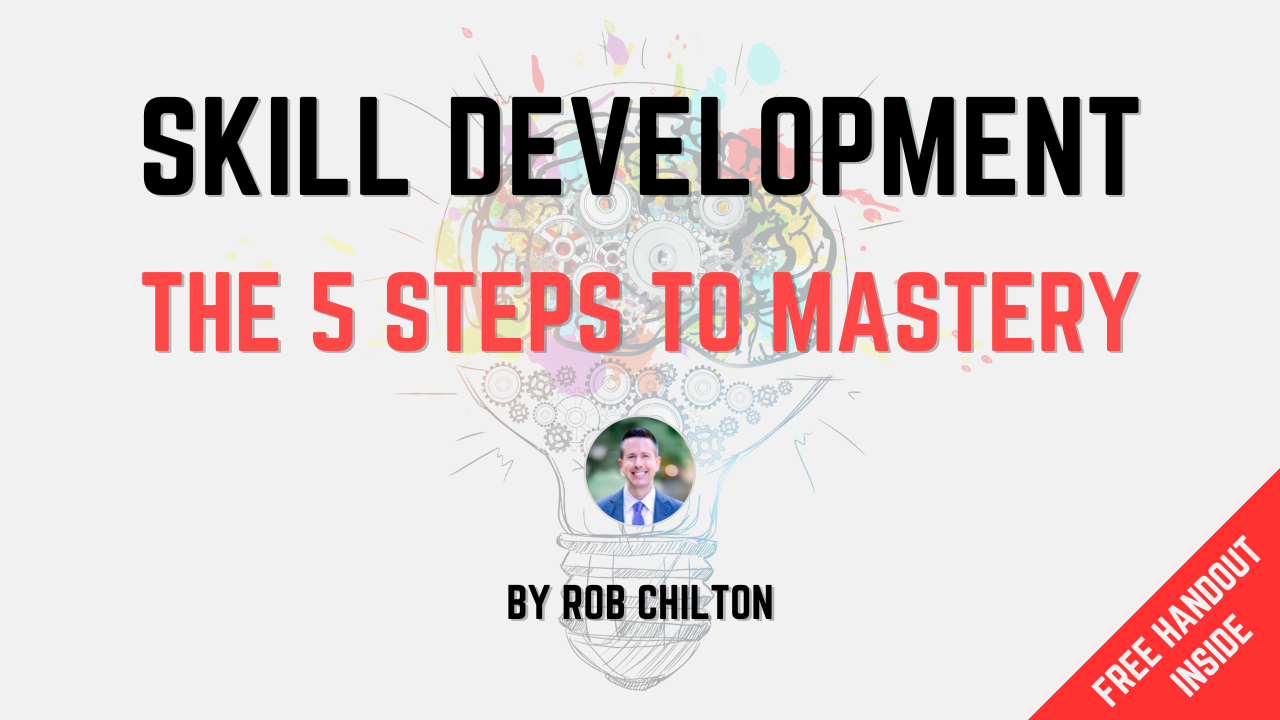The Ninth Week Roadblock: Keeping Momentum When the Initial Excitement Fades
Sep 01, 2025
Estimated Read Time: 5 minutes
By Rob Chilton
The first weeks of beginning band are special. Every period, the doors open and students trickle in with a mix of nervousness and excitement. After months of anticipation, most are eager to start learning their instrument. It’s during this time that they sit up straighter, watch more attentively, and try harder than any other time of the year, each student full of potential and giving their personal best effort.
Regardless of anyone’s prior musical experience, we start from square one to ensure we’re all on the same page. We learn foundational skills—posture, foot tap, breathing, the musical alphabet, and more—together as a group. For a while, everyone progresses at roughly the same pace… until we hit our first roadblock.
The Ninth Week Roadblock
For many, it’s around the ninth week of school when the initial excitement begins to fade. In its place is the growing or even sudden realization that learning music takes actual work—it’s not just play. Like a speed bump unexpectedly placed at the end of an on-ramp just before entering a free-flowing expressway, many kids are blindsided. Instead of moving forward with caution, some grind to a halt, as if the obstacle were impassable. Inevitably, a separation forms between those who continue giving effort and those who do not.

Watching this unfold is always disheartening. I know it’s unrealistic to expect every child to learn at the same pace, but I can’t help but wonder what can be done to keep them all moving toward their personal best. In moments like this, I often turn to personal anecdotes from my own school days to help students course-correct. These stories are usually interesting, sometimes funny, and widely relatable, and sharing them helps students see themselves in my experiences, allowing them to reflect on their own choices and actions. At the risk of embarrassing myself, one story I tell often around this time of year is about my experience taking Precalculus in 11th grade.
How Not Trying Led to Failure: My Experience in Precalculus
I’ve always enjoyed math. My favorites were Algebra 1 and 2. So when my Algebra 2 teacher encouraged me to take Precalculus, saying it was similar to Algebra, I was excited. I needed one more math credit for graduation, and this seemed like the perfect fit.
At first, I was enthusiastic. The start of the year was mostly a review of concepts I had learned in previous math classes, along with easily digestible new material. But some time around the end of the first nine-week grading term, the coursework began to shift from mostly review to primarily new information, and this new material was increasingly difficult for me.
As things got more difficult, I responded by giving less effort and paying less attention. I know this sounds silly. When things get hard, we should try even harder, right? But somewhere in my mind, I feared I wouldn’t be able to learn the new concepts—or that I wouldn’t be good at it—and by not trying, I believed I was somehow shielding myself from failure. My incorrect thinking was that if I didn’t try, then I couldn’t fail.

What I didn’t realize was that with every passing day, the class took steps forward in the curriculum, while I remained stuck. At first, it didn’t feel like I was so far behind, but by the end of the semester, the gap between what I understood and where the class was had grown so large that every assignment we did felt impossible for me—and I could no longer scratch out a passing grade.
Desperate to salvage my grade before our report cards came out, I began attending morning tutorials, but no matter how hard and urgently I tried, I just couldn’t catch up in time for the semester exam. There were just too many gaps in my understanding, all stemming from my lack of effort early on. Feeling hopeless, I pleaded for extra credit or an alternate assignment—neither of which I received. What I did get was a failing grade—my first ever—and a slap-in-the-face wake-up call that our present actions shape our future outcomes. To put it plainly, I learned that my efforts now, even when they feel small or unimportant, have a major impact on my future.
The moral of the story is that we often fall behind not because we’re unable to do something, but because we stop trying. Effort in the present will always be the best choice, even when something feels uncomfortable, uncertain, or even impossible. It’s not about being perfect—it’s about effort. Avoiding work today might feel safer, but all it’s going to do is make catching up later harder or impossible.

The Cold Water Analogy
Another way I help students push through the ninth week roadblock—or any roadblock—is with the cold water analogy. Like many people, I struggle to enter a cold pool. Before I can commit, I often dip my toes in or brush my fingers along the surface to test the temperature. Sometimes, I’ll even wade in up to my knees—but none of this helps. If anything, it only makes it seem colder and getting in even harder. What I’ve learned is that the best approach is to commit in one fell swoop, diving in all at once. The shock is intense, but short-lived.
The same is often true with learning. Testing the metaphorical waters by giving little or no effort may feel like it eases the discomfort, but all it actually does is postpone the inevitable and necessary struggle and adaptation. Just as the water doesn’t get warmer while we wait at the edge, the material doesn’t get easier while we delay. The sooner we dive in, the sooner we adapt and grow.

While you're here, check out our music literacy method!
Final Thoughts
The ninth week roadblock and the many others our students will face are simply part of the learning process. Sometimes, though, we’re so laser-focused on staying on course with the curriculum that we miss the signs that individuals, or even entire classes, are struggling or quietly giving up. Decreased engagement, fading enthusiasm, or even frequently forgetting materials are just a few possible red flags that someone is having a hard time. In these moments, it’s okay to slow down, check in, or share your own experiences with learning.
Remember: Like jumping in a cold pool, it doesn’t get easier while we wait—we just have to dive in. Pushing through struggle and adapting along the way is how growth happens. Stay tuned as I plan to share practical tools and strategies to help your students keep going when the going gets tough.
Related reading:
Never miss a new posting!
Check out this short video!
About the author:

Rob Chilton is the creator and owner of Readymade Music, LLC and its content. Previously, Chilton was a middle school band director from 2007-2021. His most recent teaching position was the Head Band Director at Killian Middle School in Lewisville, Texas from 2014-2021.
Under his direction, the Killian Honors Band was named the 2018 Texas Music Educators Association CC Honor Band and performed at the annual 2018 TMEA Clinic/Convention. In 2019, the Killian Honors Band was invited to and performed at The Midwest Clinic in Chicago. Additionally, the Killian Honors Band was named a National Winner in the Mark of Excellence National Wind Band Honors Project in 2015, 2016, 2017, 2018, and 2019.
Chilton is a graduate of Southern Methodist University where he had the opportunity to study music education under the tutelage of Lynne Jackson and Brian Merrill. During his years as a middle school band director, Chilton continued his professional growth under the guidance of his primary clinicians, John Benzer and Brian Merrill.
Chilton’s mission for Readymade Music is to promote the overall well-being of music education and support school music teachers by providing solutions to help make teaching music more efficient and inspirational while increasing engagement for 21st century learners.

© 2025 Readymade Music, LLC
All rights reserved.
The unauthorized distribution and/or reproduction of this work is illegal.





